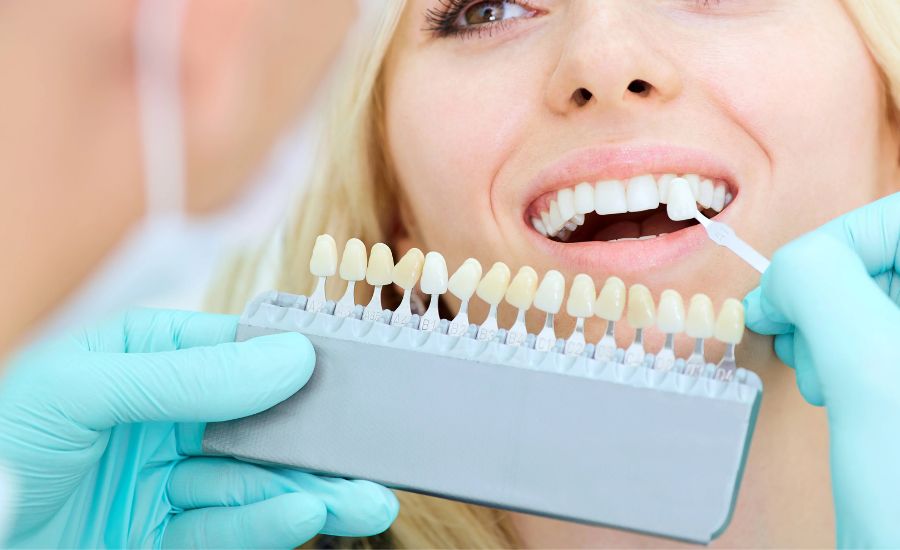A bright, white smile often brings a sense of confidence, and teeth whitening is a popular way for many to enhance their appearance. Whether preparing for a special event or simply wanting to refresh your look, whitening can be a great option. But before you get started, there are a few things worth knowing.
Teeth Whitening Explained
Teeth whitening is a cosmetic process that lightens the color of teeth. It removes stains and discoloration caused by factors such as coffee, tea, tobacco use, or age. The goal is to enhance the appearance of your smile while maintaining healthier-looking teeth.
Whitening Treatment Options
There are several ways to achieve a whiter smile, depending on your preferences and lifestyle.
- Over-the-Counter Products
Whitening toothpaste, strips, and gels are readily available and easily used at home. These products typically contain mild agents that gradually whiten teeth over time. - At-Home Kits
Many brands offer at-home whitening kits, which include trays or strips and a more concentrated whitening agent. These kits provide noticeable results when used consistently, though they can take some time. - Professional Whitening from a Dentist
Professional teeth whitening performed at a dental office offers quicker and often more effective results. Dentists use more potent whitening agents and techniques that deliver noticeable changes in a session.
What to Know Before Whitening
While teeth whitening offers many aesthetic benefits, a few factors should be considered before starting. First, the results of any whitening process are not permanent. Over time, the effects will fade, especially if you regularly consume items like coffee, wine, or citrus-based foods that can stain your teeth. Maintaining a bright smile requires regular upkeep to preserve the whitening effects. Teeth whitening can also cause sensitivity in some individuals. It’s not uncommon to experience temporary sensitivity in your teeth or gums after treatment, but this discomfort usually fades.
Whitening results vary from person to person. Factors such as the natural shade of your teeth and the type of discoloration you have can impact the outcome. Surface stains generally respond better to whitening than deeper discoloration.
Lastly, teeth whitening is not suitable for everyone. Conditions like cavities, gum disease, or tooth restorations (fillings or crowns) may interfere with the process. It’s always a good idea to consult a dentist beforehand to determine if whitening is right for your dental health.
Care Tips After Whitening
To help your results last longer, here are some practical tips to follow after whitening your teeth.
- Avoid dark-colored drinks, like coffee or red wine, for at least 48 hours after treatment.
- Rinse your mouth with water after consuming acidic or staining foods.
- Use a whitening toothpaste to maintain your results.
Practice a consistent oral hygiene routine by brushing and flossing daily.
When to Visit a Dental Professional
Professional teeth whitening is excellent if over-the-counter options aren’t working as expected or you seek faster, more dramatic results. Dentists can provide expert advice, customize treatment to your needs, and address concerns like sensitivity or uneven discoloration. Professional guidance also makes sure that whitening is performed safely without risking over-bleaching or harming your enamel. If whitening isn’t ideal for you, a dental professional can suggest alternatives that help you achieve a brighter smile.
Brighten Your Smile with Confidence
Teeth whitening can be an excellent way to enhance your smile and boost your confidence. By understanding your options, knowing what to expect, and following simple aftercare tips, you’re on your way to achieving your dream smile. Contact your local dental office to explore options that best suit your needs. Their expertise can help you choose a healthier, brighter smile.
